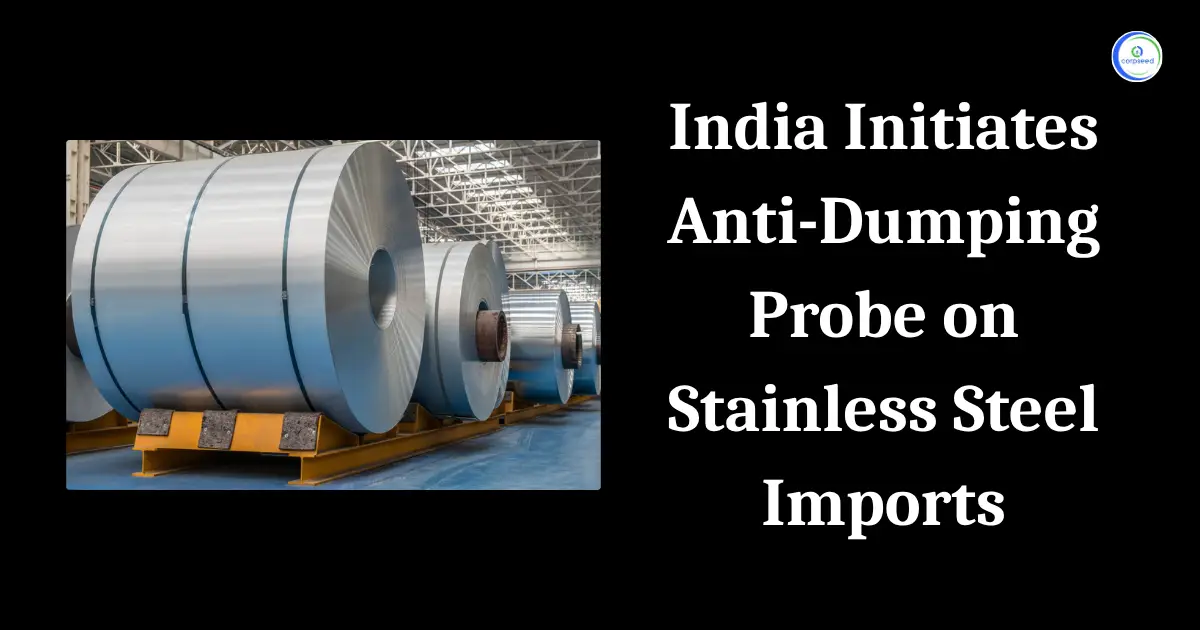India has commenced an anti-dumping inquiry regarding the imports of cold-rolled flat stainless steel products from China, Indonesia, and Vietnam. The Directorate General of Trade Remedies (DGTR), part of the Ministry of Commerce and Industry, began the investigation in response to an official complaint filed by the Indian Stainless Steel Development Association (ISSDA).
Table of Contents
Participants of ISSDA, such as Jindal Stainless Limited (JSL) and Steel Authority of India Limited (SAIL), claimed that the rise in low-cost stainless steel imports is significantly impacting the local industry. They argued that these imported products are being offered at excessively low prices, which results in market imbalance and diminishes the competitiveness of Indian manufacturers.
Scope and Product under Review
The DGTR announcement indicates that the inquiry encompasses cold-rolled stainless steel goods that contain a minimum of 6% nickel. These materials are commonly utilized in the manufacturing, construction, and automotive industries. The products under review consist of coils, sheets, plates, strips, and circles.
The investigation into the injury will cover the period from FY22 to FY25. DGTR has observed that there is initial evidence of dumping and that it is directly related to the harm experienced by the domestic industry. An initial analysis shows a significant decline in market share and price pressure in the domestic market as a result of low-cost imports.
Industry Concerns and Market Impact
As reported by the ISSDA, the ongoing inflow of dumped steel has driven down domestic prices and has created instability in the Indian stainless steel sector. Local manufacturers contend that the price drop resulting from imported products has led to decreased production levels, shrinking profits, and underuse of their capacities.
The association also asserted that the domestic industry's ability to compete on a level playing field is being compromised, as foreign exporters benefit from advantages in their home markets. This situation has created a pressing requirement for government action through the implementation of anti-dumping duties or other protective trade measures.
India's investigation into anti-dumping represents a crucial move to defend its stainless steel industry. The conclusions drawn by the DGTR will decide whether tariffs are necessary to guarantee equitable pricing and support the expansion of the domestic market.
This portion of the site is for informational purposes only. The content is not legal advice. The statements and opinions are the expression of author, not corpseed, and have not been evaluated by corpseed for accuracy, completeness, or changes in the law.

